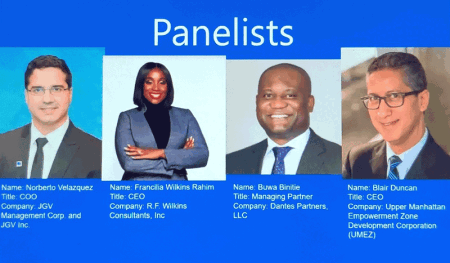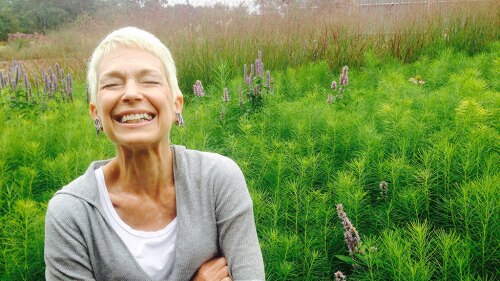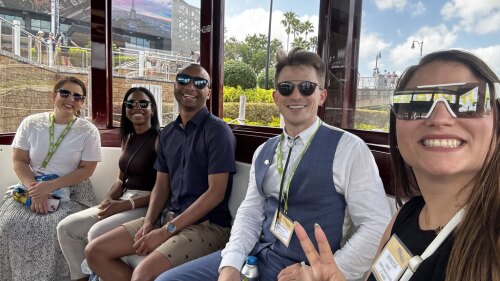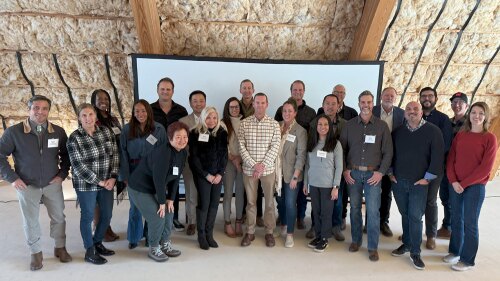Project REAP (Real Estate Associate Program) has been working with some of the commercial real estate industry’s largest firms to expand diversity and inclusion through education, mentorship, and partnerships. In doing so, REAP is creating a nationwide network of commercial real estate professionals of color.
In mid-December, Project REAP and ULI held a ceremony celebrating the 190 graduates who completed the ULI/REAP Online Academy in 2020. But this year’s graduating class is unique—not only by being the largest single cohort in the program’s 22-year history, but also by being conducted virtually from start to finish, which allowed for a broader geographic pool of participants.
Historically, REAP academies have trained 25 to 30 participants in a 10-week program through in-person classes in large cities across the United States from Los Angeles to New York City. They are taught the terminology, processes, concepts, and skills necessary to either enter the commercial real estate industry or elevate their existing career within the field.
REAP Chief Program Officer Osayamen Asemota-Bartholomew noted that, “Every crisis brings an opportunity. The challenges of going online also presented many benefits. Being virtual allowed REAP to open up the academy to roughly six times the usual number of participants.”
As REAP was preparing for its 2020 spring academy in March, the COVID-19 pandemic was shutting down many cities around the world. It became clear that a 2020 cohort of the traditional in-person program would not be feasible. Gwyneth Jones Coté, ULI President–Americas as well as a member of REAP’s board of directors, recognized that the Institute could step in and provide an innovative solution. As the Executive Diamond sponsor, ULI worked closely with REAP staff to create the fall virtual academy.
“ULI is the preeminent real estate organization and is committed to leading the industry in welcoming diverse professionals into all sectors of commercial real estate,” Coté said. “One way is to partner with organizations like REAP, which has been educating and connecting talented individuals from diverse backgrounds since 1998. ULI was able to step into the void caused by the pandemic and create the opportunity for this talented class of candidates to participate in the ULI/REAP Fall Academy virtually this fall. And ULI will offer this opportunity again in the spring.”
In his remarks to the graduating class, REAP chairman G. Lamont Blackstone celebrated the possibility of a more robust network born of the virtual format that will live on in the offline world. “You will be at the vanguard of a nation and industry facing this new challenge,” he said. “Relationship capital is the foundation of the real estate industry and real estate careers.
“If we reach beyond the silos of REAP class years and geographies, REAP alumni will have a powerful tool to connect with each other,” Blackstone said. “If we do this, we will slowly see the fruits of increased productivity, and increased business opportunity that will eventually reach a tipping point when those nodes of connectivity literally skyrocket. Then, and only then, will we see our own version of the network effect.”
Though moving the academy online came with challenges, it presented many benefits as well. It allowed REAP to open up the academy to roughly six times the usual number of participants and include representation from 22 U.S. states, Canada, India, and Japan. Participants came from a wide variety of backgrounds ranging from construction management to community development to finance.

A screenshot of one of the ULI/REAP Virtual Academy’s weekly happy hours, titled Charting Your Path to C-Suite. From left to right: Norberto Velazquez (REAP NYC ’18), COO of JGV Management Corp. and JGV Inc.; Francilia Wilkins (REAP-New York City 2013), CEO, R.F. Wilkins Consultants; Buwa Binitie (REAP-Washington, D.C., 2005), managing principal, Dantes Partners; and Blair Duncan, president and CEO, Upper Manhattan Empowerment Zone.
The virtual format also allowed for weekly lectures and social events with experienced commercial real estate professionals who might otherwise not have been able to participate. Participant Ayize “Glenn” Gray said, “The weekly ULI/REAP-hosted virtual happy hours and breakout sessions were educational and informative while providing unparalleled opportunities to network and establish meaningful business relationships with peers.”
REAP offers an alumni directory to help maintain and foster that relationship capital among graduates. The program also relies on alumni to step into local leadership roles to keep building the nationwide network of REAP graduates. In addition, participants in the academy are given a complimentary one-year ULI membership, giving them access to the Institute’s educational resources, events, and professional networks.
As part of the ceremony, ULI executive vice president Cindy Chance echoed Blackstone’s emphasis on strengthening networks. “We are so impressed by what you have accomplished during this challenging time. You inspire us. May you benefit from engagement with your community,” she said. “May this community benefit from you. Mr. Blackstone talked about how relationship capital is so important, and I want you to remember that your greatest asset is each other. Please keep up with us. We will follow your success with pride.”
Some of the students shared some of their plans for after graduation and what the program meant to them. As one example, Maria Smith Dautruche is a longtime vice president at the New York City–based nonprofit National Urban League but is currently transitioning into a senior advising role to the organization while she builds up a consulting portfolio. She shared that she hopes to work on using commercial real estate deals to create philanthropic community investments and community partnerships, and the academy helped give her the confidence to make the leap into a new career.
“Fellow cohort members sharing their stories, offering advice, providing insights and encouragement were integral parts of my ability to complete this program,” said Smith Dautruche. “I was overwhelmed with thoughts about ‘starting over’ and perhaps being at the bottom. But I did some research and took to heart what various presenters said about their jobs and their companies and at the end of this month will be transitioning into my new role.”
Kwame Campbell, who works as a real estate conference planner in New York City, said that finishing the fall academy left him excited about the possibility of diversifying the pool of speakers that he can tap into in his current job. “I don’t see many people of color in my line of work,” he said. “It’s often difficult to find people of color to participate as speakers at my conference and I don’t see many even attending the conferences. . . . Because of all that, I’ve really enjoyed seeing and connecting with people of color in the industry.”
Academy graduate Shana Loflin already works as a mortgage and real estate broker in Southern California, but she was drawn to the ULI/REAP academy because she considers herself a lifelong learner. Like Campbell, Loflin is excited to take what she learned at the academy to continue changing the face of the industry.
“The hot topic right now [in many cities] is gentrification, owning your own block, and making sure the money is going into the right places,” Loflin said. “You see people that look like you that own these projects and develop these projects and it changes the conversation. I hope we continue to push. This experience empowers us to do that. It gives us the tools to know how to do that.”
“After some 22 years of continuous execution of our academies and networking initiative, the pandemic caused the suspension of our spring academies and risked halting our educational momentum for the entire year,” Blackstone said. “Only the financially strongest educational institutions . . . can survive a black-swan event such as what America faced in 2020. Because of ULI’s visionary leadership, REAP not only maintained its mission but discovered a vehicle for expanding its reach to new markets—including talent domiciled overseas.”
Blackstone also noted that previous financial cycles have had disparate impacts on the diversity of the financial industry as a whole, saying, “Talented minority professionals are at heightened risk of losing employment within [and connections to] the CRE industry when a major economic shock precipitates an industry downturn—that ‘last-in, first-out’ phenomenon was particularly damaging to career prospects of BIPOC [Black, Indigenous, and people of color] professionals during the Great Recession of 2008. The multifaceted aspects of the virtual academy will help to mitigate the impacts on our pools of talent.”
Learn more about ULI’s DEI initiatives and join the member-only DEI Community.




